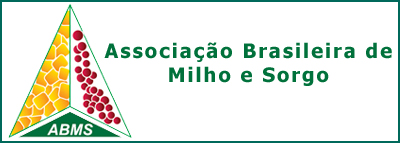NATURAL CONTROL OF Helicoverpa armigera (LEPIDOPTERA: NOCTUIDAE) PUPAE IN ORGANIC AND CONVENTIONAL MAIZE CROPS
Palavras-chave:
biological control, edaphic fauna, conservation, Helicoverpa armigera, environmental servicesResumo
The natural biological control of soil pests is poorly studied. Notably, the control of Helicoverpa armigera in the pupae stage is unknown. To increase knowledge about the control of this pest in organic and conventional maize crop, tests were conducted to verify if the duration of pupae availability in days, the type of crop treatment (organic and conventional), the stage of crop development, and the depth of the soil significantly affect predation by natural enemies. The pupae
availability time (days) in the soil did not affect their removal by natural enemies. However, in the fallow stage, on the surface and in the reproductive phase, the predation was higher. In organic maize, predation was 15% higher when compared to conventional maize. The rupture of the soil and the possible losses associated with beneficial fauna were the main factors responsible for higher predation during fallow, so conservationist practices usually used in organic treatment are the main reason for higher predation in this type of crop. There is a significant decrease in the control of H. armigera pests by natural enemies when maize is grown using conventional practices, what reinforces the importance of the conservation techniques used in maize crops.
Downloads
Publicado
Como Citar
Edição
Seção
Licença
Autores que publicam nesta revista concordam com os seguintes termos:- Autores mantém os direitos autorais e concedem à revista o direito de primeira publicação, com o trabalho simultaneamente licenciado sob a Creative Commons Attribution License que permitindo o compartilhamento do trabalho com reconhecimento da autoria do trabalho e publicação inicial nesta revista.
- Autores têm autorização para assumir contratos adicionais separadamente, para distribuição não-exclusiva da versão do trabalho publicada nesta revista (ex.: publicar em repositório institucional ou como capítulo de livro), com reconhecimento de autoria e publicação inicial nesta revista.
- Autores têm permissão e são estimulados a publicar e distribuir seu trabalho online (ex.: em repositórios institucionais ou na sua página pessoal) a qualquer ponto antes ou durante o processo editorial, já que isso pode gerar alterações produtivas, bem como aumentar o impacto e a citação do trabalho publicado



